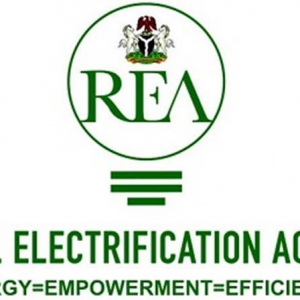Following a recent report by the National Bureau of Statistics (NBS) on capital importation, analysts have stated that Nigeria’s current macroeconomic environment remains highly favourable to foreign portfolio investors (FPIs), predicting a further rise in total inflows in 2025.
The NBS had in a report stated that capital imported into the country rose by 10.9 per cent quarter-on-quarter to $5.64 billion in Q1 2025, the highest in 20 quarters and the largest since Q1 2020’s, which was $5.9 billion.
On a year-on-year basis, the report said total inflows jumped 67.1 per cent, underpinned by strong foreign appetite for naira-denominated assets amid relative price and currency stability in the period.

In a review of the figures, analysts at Afrinvest noted that portfolio investment overwhelmingly dominated the flows, rising by 30.1 per cent q/q and 150.8 per cent y/y to $5.2 billion, accounting for 92.2 per cent of total inflows.
The analysts stated: “For FY:2025, we project capital importation to reach $19.3million, implying a 56.1 per cent y/y increase. The outlook is informed by favourable domestic interest rate environment and price-currency stability, impact of tariff-war on global investment sentiment and potential for subsequent U.S rate cut.”
They added: “The bulk of the FPI flows was to money market instruments up 162.2 per cent y/y to $4.2billion, while Bonds up 108.5 per cent and Equities up 137.7 per cent attracted $877.4million and $117.3million respectively.”
Afrinvest described the surge in portfolio inflows as being driven largely by opportunistic placements in the money market, where Treasury Bills, Bonds, and OMO bills offered yields above 20 per cent.
However, it cautioned that such “hot money” remains highly sensitive to shifts in domestic monetary policy, global risk sentiment, and macroeconomic shocks, and could taper off once the Central Bank of Nigeria (CBN) pivots to a more accommodative rate stance.
“While portfolio flows swelled, more stable and growth-oriented foreign direct investment (FDI) was subdued, rising just 6.0 per cent y/y to $126.3 million but contracting 70.1 per cent q/q, representing only 2.2 per cent of total inflows compared with 3.5 per cent a year earlier. Afrinvest attributed this weak performance to “low confidence in the long-term prospects of the economy amid the legacy issues of insecurity, weak institutions and enforcement of law, bureaucratic inefficiencies, and a high corruption perception.
“Sectoral data revealed a heavy skew towards financial services, with banking absorbing 55.4 per cent of inflows and financing 37.2 per cent, leaving manufacturing, telecommunications, and other sectors with a marginal share. Geographically, Lagos and Abuja captured 99.7 per cent of total inflows, highlighting what Afrinvest called “deep competitiveness gaps across subnationals,” they said.
Meristem Research, in its commentary, echoed the dominance of portfolio flows in Q1 2025, which it said, “reflected renewed foreign appetite for Nigerian equities and fixed-income instruments following improved macroeconomic reforms and attractive yields. It also expects portfolio inflows to remain robust in the short term, driven by high domestic yields, foreign exchange reforms, and improving macroeconomic stability.”
However, Meristem added that FDI’s continued weakness, alongside the concentration of inflows in a narrow set of sectors and locations, underscores the need for deeper structural reforms to attract patient capital that can support diversified, long-term growth.
It stated: “In the short term, we expect portfolio inflows to remain strong, supported by high domestic yields, FX reforms, and improving macroeconomic stability. This would give investors a window of opportunity to benefit from elevated fixed- income returns and potential capital gains in Nigerian equities, particularly in sectors attracting significant foreign participation such as banking and financial services.”
Stay ahead with the latest updates!
Join The Podium Media on WhatsApp for real-time news alerts, breaking stories, and exclusive content delivered straight to your phone. Don’t miss a headline — subscribe now!
Chat with Us on WhatsApp





